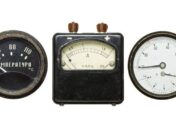Leadership and self-awareness: What makes you tick
A study conducted at Cornell University’s School of Industrial and Labor Relations looked at the leadership styles, backgrounds, and track records of senior executives from a range of companies. The researchers found that a high self-awareness score was the single best predictor of overall success.
Another study by the Korn/Ferry Institute looked at the cost of low self-awareness, noting that poorly performing companies’ employees had 20% more blind spots (gaps in self-awareness) compared to those working at financially strong companies, and they were 79% more likely to have low overall self-awareness than those at financially strong companies. (Zes and Landis, 2013)
Self-awareness is fascinating stuff. We’ve all had that mystifying experience of watching someone act atrociously, with no apparent awareness of the impact they’re having, or how they seem to be working against their own cause. Also likely, somewhat horrifying, and worth considering: We’ve also BEEN that bull in a china shop, careening around without realizing the damage we’re causing.
So what IS self-awareness, and how does it shape your effectiveness as a leader?
- Know your strengths and weaknesses. There are several questions to consider:
- Do you have a reasonably accurate understanding of your strengths and weaknesses, untainted by reckless confidence or false modesty?
- What’s the balance between your focus on people (leveraging teams, mentoring individuals) and your focus on achieving results (being decisive, understanding systems)?
- How do your strengths and weaknesses fit within your team? If you’re highly results-oriented, who will help mentor and develop the people on your team? If you have a gift for rallying people around a shared vision but you’re less skilled at follow-through, who will help the team maintain momentum and achieve results?
- Understand how you react under pressure. Are you aware of how you react when you’re feeling stressed or challenged? Are you able to draw on your strengths, or do your fight/flight/freeze impulses get in your own darn way? This is a particularly tricky facet of self-awareness: We all learned patterns of behavior when we were tiny people in a big and confusing world, behaviors that helped us feel safe or show our worth. These reactive patterns can be so woven into our identity and sense of reality that we don’t perceive them. (We don’t call them blind spots for nothing. Like many things in human nature, it’s much easier to see the patterns in someone else.) In broad strokes, there are three patterns that we tend to fall into. See which ones ring a bell:
- Complying: This can look like people-pleasing, being excessively cautious, or prioritizing harmony over the hard truths.
- Protecting: For example, people might become distant, aloof, or cynical, or position themselves as superior.
- Controlling: This can look like micro-managing, aggression, or pursuing results at the expense of people.
- Develop emotional intelligence. On a related note, how well do you perceive and understand your own emotions? What practices help you manage your responses? (In this discussion, I’m focusing on the self-awareness and self-management aspects of emotional intelligence.)
- Uncover your guiding beliefs. We tend to accept our beliefs as truths. What are the beliefs that shape your understanding of the world? Do those beliefs serve you? Do they help you have the impact that you want? Like reactive patterns, our beliefs can be so ingrained that they’re hard to identify. Here’s one approach: Look at the metaphors and figures of speech that you use or grew up with. Is it a “dog-eat-dog world” or do you think that “a rising tide lifts all boats”? Are you worried about “getting too big for your britches” or were you raised to “look out for Number One”?
- Identify and learn to manage your inner critics. A close cousin to your beliefs, inner critics are those parts of your inner narrative that often show up as doubters, naysayers, and judges. Different from thoughtful analysis or considering the risks, the inner critics typically bring a demeaning tone that interferes with your performance and effectiveness.
- Articulate your core values. What are the principles or ideals that guide you, especially when the going gets rough?
- Integrate your whole self. In spite of persistent cultural messages to the contrary, you are more than your big, old brain. You are walking around in a gloriously complex body, which carries your brain along with your emotions and your spiritual self (whatever that means to you.) Where do you hold tension in your body? How do you connect with what you’re feeling? And when was the last time you took a deep, calming breath?
YOUR TURN: How does this map to your views on self-awareness? What do you know about yourself, and where are your blind spots? (And how do you go about finding them?!)
NEXT TIME: Paths for deepening your self-awareness.
Related Posts
- ← Developing Leadership: overcoming isolation, amplifying strengths
- Leadership musings: Paths to deeper self-awareness →





![Staying connected over [social] distance](https://www.shorthandconsulting.com/wp/wp-content/uploads/2020/03/hans-peter-gauster-3y1zF4hIPCg-unsplash700x200-176x128.jpg)









